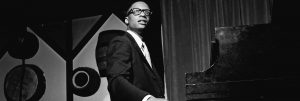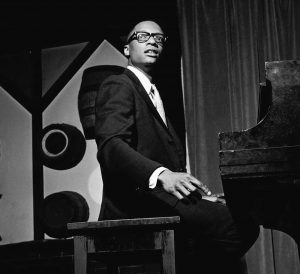From its roots in the drum circles of New Orleans’ Congo Square in the 19th Century through to the Lindy Hoppers at Harlem’s Savoy Ballroom in the swing era, jazz had always been music to dance to. By the time of bebop though, jazz had, to a large degree, become music for the head rather than the feet.
In the 1960s artists on labels like Blue Note, Verve and Prestige would take jazz back to its roots through funky soul jazz that broke from the constraints of bebop. But it would take clothes and music obsessed teenagers thousands of miles away in the UK for these records to reach the dancefloor.
London’s first immaculately dressed ‘Modernists’ appeared in the late 1950s. Their refined musical tastes matched their clothes, with imported albums on Blue Note being particularly sought after. It wasn’t just American jazz though as London’s first modern jazz groups emerged. As Simon Spiller wrote in the liner notes to the “Soho Scene 57” album of 2023. “They had a new enclave, the Flamingo Club, with membership in its thousands, and a new cause célèbre in the Jazz Couriers, a quintet of genuine kick-ass quality.”
Alongside the hard bop of Tubby Hayes, Ronnie Scott and their cohorts, a more soulful and funky jazz sound was breaking through at The Flamingo. It was personified by the club’s house band, Georgie Fame & The Blue Flames who took their cue from Les McCann, Mose Allison, and Jimmy Smith. It was a funky modern sound that the younger mods craved as the cliquey Soho scene evolved into a subculture across the UK.
By 1963 the word mod was in common usage to describe the younger generation who gathered at clubs like The Scene in London, Twisted Wheel in Manchester, and The Sink Club in Liverpool. As Dave Gelly wrote in his review for The Guardian of the 2019 box set of the “Jazz Goes Mod” series. “These were a hard core of modern jazz fans…watchful and prickly, they were contemptuous of virtually everyone else, especially trad jazz fans and scruffy student types.”
Although R&B and soul became the predominant music in the mod clubs, the funky end of soul jazz was an important part of the soundtrack. Here is our guide to some of the albums recorded for Blue Note, Verve and Argo that were mined by DJs and dancers back in the sixties, that sound just as hip and happening today.
Jimmy Smith – Back at the Chicken Shack
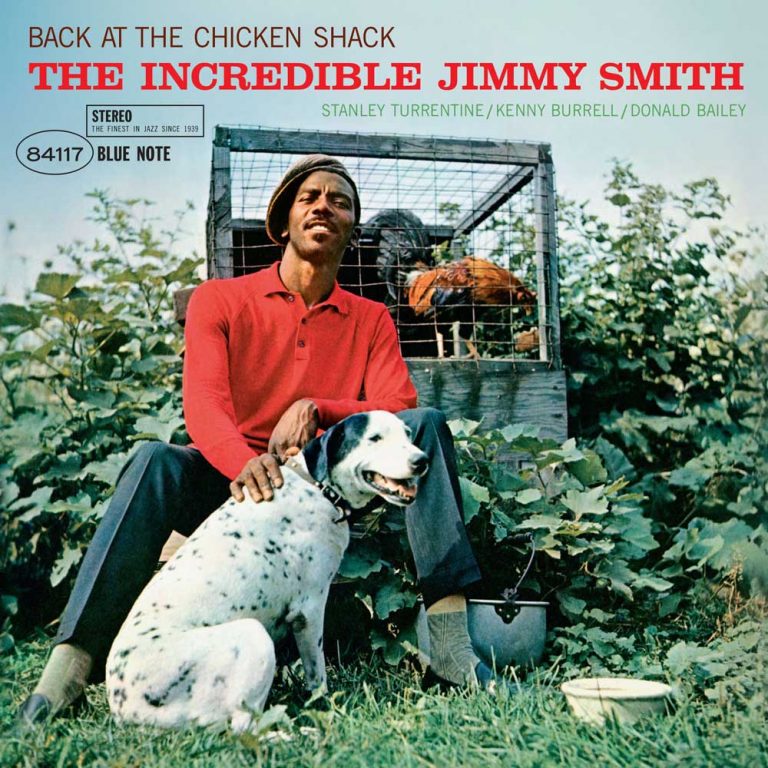
JIMMY SMITH Back At The Chicken Shack
Available to purchase from our US store.One day in 1963, Flamingo regular Brian Auger was walking past his local record shop. “I was like ‘What the hell man?’ I had never heard anything like it. So I walked in and asked ‘What is this?’ and they showed me the cover. It was Jimmy Smith’s “Back At the Chicken Shack”,” the London Hammond maestro told me in 2022. “The sounds of these organs were so foreign to playing jazz. So when I first heard Jimmy Smith, I really couldn’t figure out what this was.” Recorded at Van Gelder Studio with tenorist Stanley Turrentine, guitarist Kenny Burrell and drummer Donald Bailey it remains one of Smith’s greatest records and a firm mod jazz favourite – from the Flamingo in Soho to the Twisted Wheel in Manchester.
Jimmy Smith – The Cat
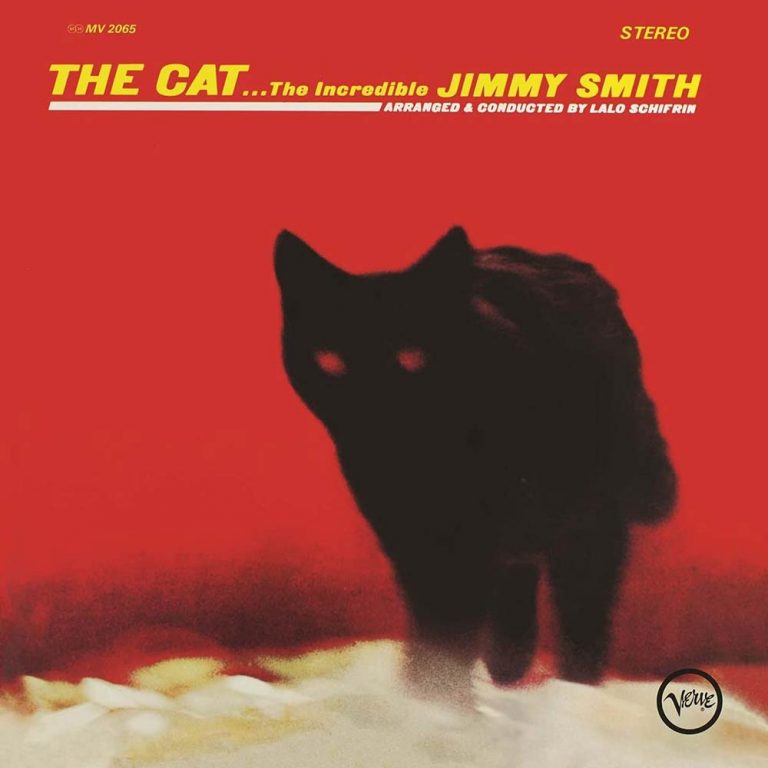
JIMMY SMITH The Cat
Available to purchase from our US store.We tried but we couldn’t just pick one Jimmy Smith album in a list of mod jazz records. After “Back at the Chicken Shack” Smith recorded three albums for Verve, the label he had first recorded as The Incredible Jimmy Smith on “Bashin’: The Unpredictable Jimmy Smith” in 1962. The partnership continued on the 1964 album “The Cat” as Smith jumped between Blue Note and Verve throughout the sixties. The epitome of sharp and raucous yet thoroughly refined Hammond led jazz “The Cat“ was recorded at Van Gelder Studio with a brass and percussion ensemble conducted by the great Lalo Schifrin.
Blue Mitchell – Hi Heeled Sneakers
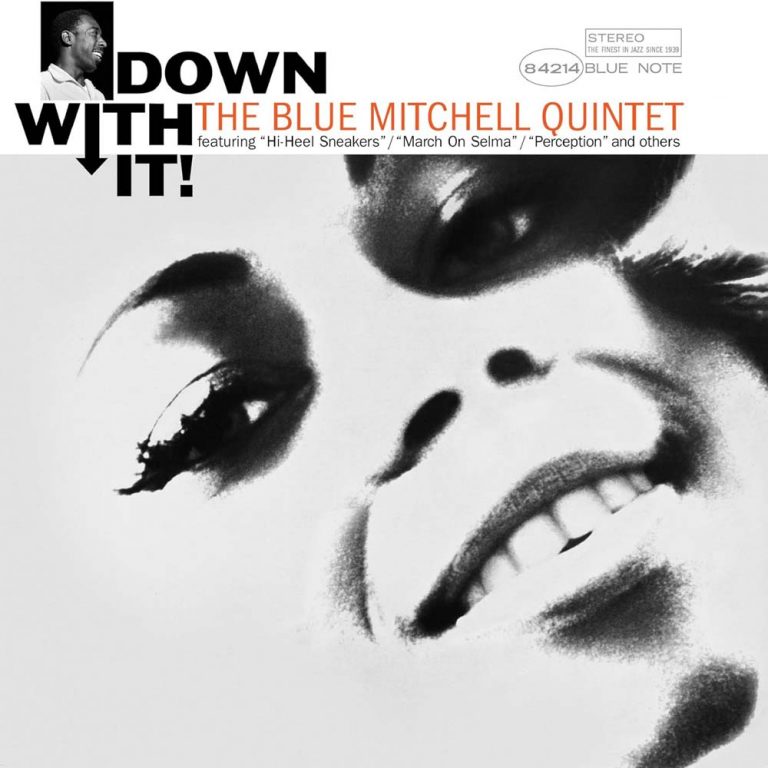
BLUE MITCHELL Down With It! LP (Blue Note Tone Poet Series)
Available to purchase from our US store.“Hi Heel Sneakers” was penned by Robert Higginbotham, better known as Tommy Tucker, who recorded the track in 1964 as a blues number. It first became a mod anthem when recorded in 1965 by Jackie Ivory. The same year it opened “Down With It!” With Blue Mitchell’s soaring trumpet accompanied by Chick Corea’s piano and a rhythm section of Al Foster on drums and Gene Taylor on bass. The track was later covered by mod revival group Cross Section for the 1979 soundtrack to Quadrophenia. “Hi Heel Sneakers” appears in Tony Foley’s chart of hits from The Flamingo in 1964 from Paul ‘Smiler’ Anderson’s essential book Mods: The New Religion, sandwiched between Earl Jean’s “I’m Into Something Good” and Chuck Berry’s “No Particular Place to Go”.
Ramsey Lewis Trio – The In Crowd
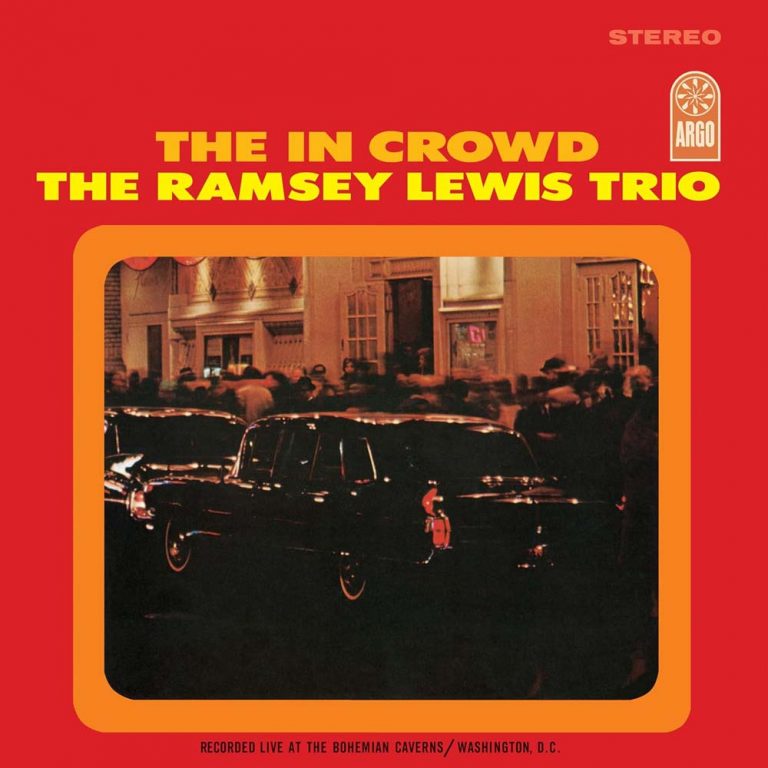
RAMSEY LEWIS TRIO The In Crowd LP (Verve By Request Series)
Available to purchase from our US store.Also appearing in Tony Foley’s chart from The Flamingo, this time from 1965, next to bona fide mod soul classics like Wilson Picket’s ‘In The Midnight Hour’ alongside the original soul vocal version of “The In Crowd ” by Dobie Grey. Penned by Billy Page, brother of Gene Page, it became the title track of Ramsey Lewis’ 1965 album for Argo recorded over three days during a 1965 club date at the Bohemian Caverns in Washington, D.C. A soul jazz track that ranks alongside the pianist’s ‘Wade in the Water’ as an all time mod classic. Now available on heavy vinyl in our Verve By Request Series.
Nina Simone – Work Song
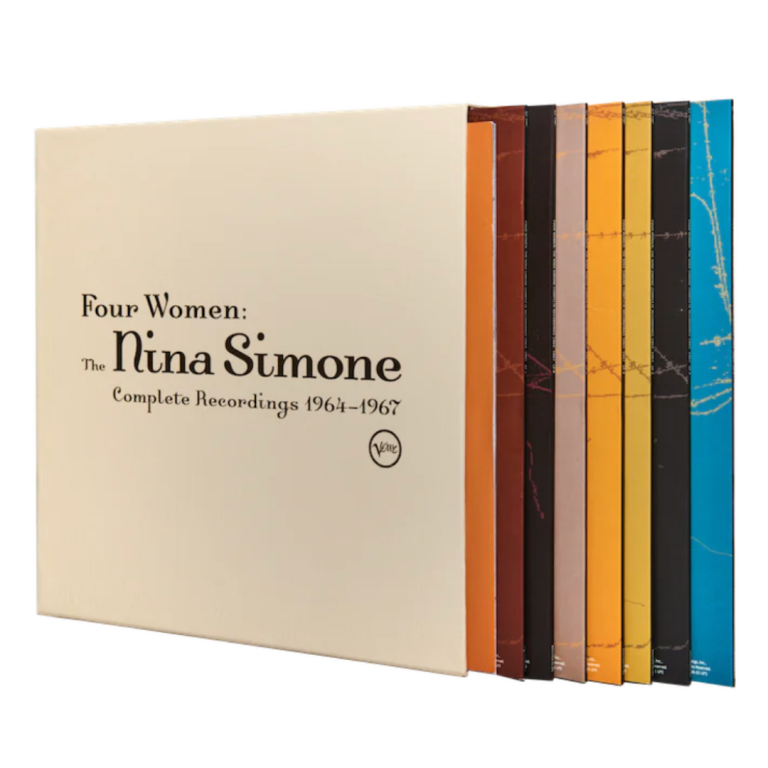
NINA SIMONE Four Women
Available to purchase from our US store.Digging through the crates at Sounds of the Universe in London’s Soho recently I came across the 7” of Nina Simone’s version of Nat Adderley’s “Work Song” on the collectors label Popcorn 45, a subsidiary of the Jazzman label. The Sounds of the Universe website described the release perfectly: “The quintessential jazzy mod number was recorded by dozens of other singers but few injected it with as much heart and sass as Ms. Simone.” Taken from the deluxe box set “Four Women: The Nina Simone Complete Recordings 1964-1967”.
Kenny Burrell – Chitlins Con Carne
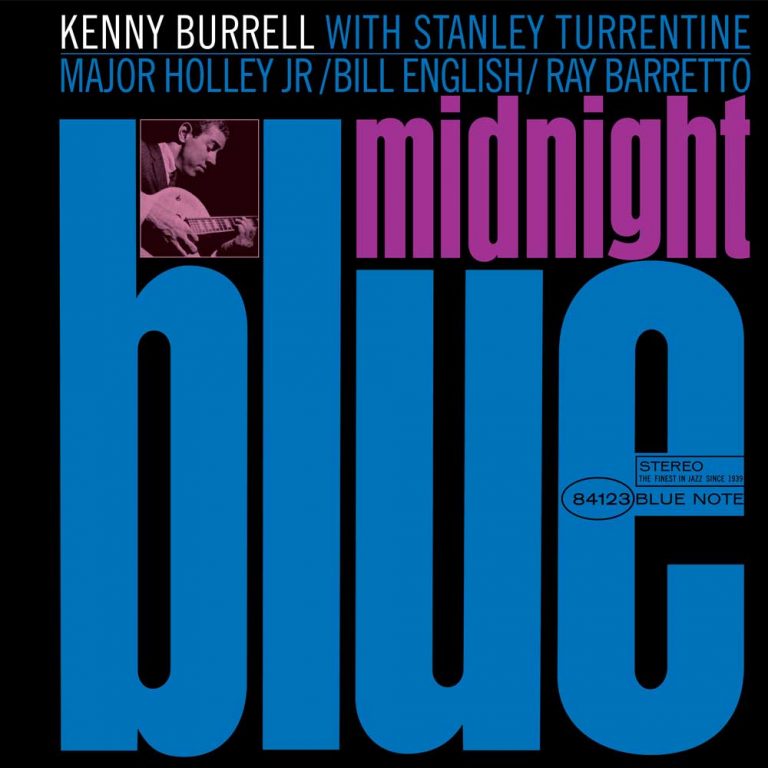
KENNY BURRELL Midnight Blue LP (Blue Note Classic Vinyl Series)
Available to purchase from our US store.The Verve label was home to a raft of mod jazz records, most famously those of Cal Tjader whose Latin infused albums like “Soul Sauce” have kept dancefloors moving since the sixties. Guitarist Kenny Burrell also recorded mod favourites for Verve like the 1965 single “Downstairs”, written by Elvin Jones and produced by Creed Taylor. Two years earlier he had entered the same Van Gelder Studio with a band that included Stanley Turrentine on tenor and Ray Barreto on congas for the Blue Note album “Midnight Blue”. The Latin flavoured “Chitlins con Carne” for Blue Note had exactly the right soul jazz groove the young mods loved.
Read on…Joe Henderson – Blue Note’s Multifaceted Tenor Master
Andy Thomas is a London based writer who has contributed regularly to Straight No Chaser, Wax Poetics, We Jazz, Red Bull Music Academy, and Bandcamp Daily. He has also written liner notes for Strut, Soul Jazz and Brownswood Recordings.
Header image: Ramsey Lewis. Photo: Gai Terrell/Redferns via Getty.

